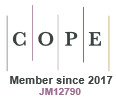The effect of water deprivation on signalling molecules that utilise cGMP in the spinifex hopping mouse Notomys alexis.
RA Heimeier , RC Bartolo and JA Donald
Australian Mammalogy
26(2) 191 - 198
Published: 2004
Abstract
In mammals the natriuretic and guanylin peptides influence renal and intestinal fluid content and electrolyte transport by binding to and activating guanylyl cyclase (GC) receptors that in turn stimulate production of the intracellular second messenger guanosine 3’:5’-cyclic monophospate (cGMP). However, the role of natriuretic and guanylin peptides in desert mammals is not understood. The spinifex hopping-mouse (Notomys alexis), has a suite of behavioural and physiological mechanisms that permits survival for extended periods without access to free water. Because signalling molecules that generate cGMP are known to promote water excretion, it was predicted that natriuretic and guanylin peptide synthesis would be down regulated in water-deprived N. alexis, and thus reduce the amount of water lost in the urine and faeces. However, in the kidney ANP and GC-A mRNA levels were increased in water-deprived mice, but CNP and GC-B mRNA levels were decreased. Water deprivation increased guanylin and uroguanylin mRNA expression in the distal colon, but it remained unchanged in the kidney and proximal colon. The expression of GC-C mRNA increased in the proximal colon but not in the distal colon. This study shows that water deprivation differentially affects the expression of regulatory molecules that stimulate cGMP production, and that a down-regulation associated with water conservation does not uniformly occur.https://doi.org/10.1071/AM04191
© Australian Mammal Society 2004


